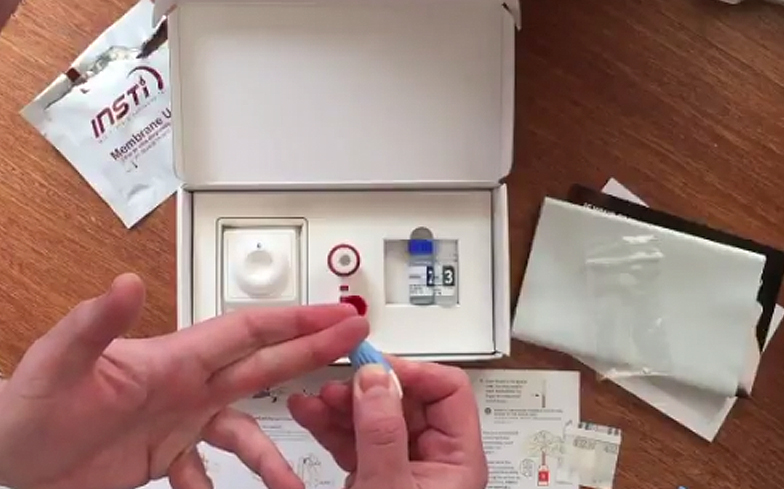
National HIV Testing Week runs from 16 to 22 November.
I cannot over-emphasise that HIV testing is relevant for everyone, regardless of sexuality, gender, ethnicity or age. I recommend that you have an HIV test if you’ve had a casual partner within the last year or not tested previously.
This November I have been reflecting on HIV testing and my own journey with the virus in a fresh light. I was diagnosed with HIV on 18 January 2010, so it is nearly 10 years ago now. I was 24 years old at the time.
I tested twice a year for HIV and all other STIs from the age of 17. It was at this age that I first visited an STI clinic when I was still at school.
I recall turning up at the clinic, having removed my distinctive school blazer and tie before entering the building. My trousers and blue shirt could, I thought, just about pass for office attire.
I started to explore the gay scene from the age of 16. As the nurse, very patiently and without judgement, explained to me, given my number of sexual partners, I should aim to get a full STI screen at least twice a year. I would follow this routine until 2010 when I received my HIV diagnosis.
At that first visit, the nurse told me about hepatitis A and B vaccinations. Most of the science went over my head, but I agreed to be inoculated against the viruses. This is another facet to HIV testing that I am keen to highlight.
When you go for an HIV test, in all likelihood, the result will not be reactive i.e. it will come back negative. However, knowing your HIV status and the conversations that taking a test trigger are of great importance. Chatting with that nurse I learned about the importance of regular HIV testing and how I could protect myself against other STIs.

I finished university in the summer of 2009, starting work at a law firm in August 2009. I had been for an HIV test in the spring of 2009, which came back negative for all STIs. Between the spring of 2009 and January 2010 I had four sexual partners, fewer than usual for my early-twenties. I also thought that we had used protection every time.
My HIV diagnosis therefore came as a complete shock. I expected to be in and out of the clinic fairly quickly. There had been far more drunken student encounters in my late teenage years – perhaps my luck had just run out.
Since my diagnosis in 2010 there have been significant developments in HIV prevention, treatment and care. The latest Public Health England estimates suggest that there are 103,800 people living with HIV in the UK, with around one in 14 people living with the virus undiagnosed.
More people are on treatment and the number of new HIV diagnoses fell by 6 per cent last year, although in 2017 the decline was 17 per cent so we cannot be complacent. Late diagnoses remain consistently high, at 43 per cent. This clearly indicates that there are groups of people who are either reluctant to test, because of the stigma associated with HIV, or who lack awareness about the virus or the testing options available to them.
I was fortunate, in that because I accessed testing regularly, my HIV was detected early on. Seeing a specialist regularly ensured that I remained healthy. Furthermore, we now know that an HIV positive person on effective treatment cannot pass the virus on. In the UK 97 per cent of people diagnosed and on treatment are virally suppressed.
We need to redouble our efforts in terms of testing to ensure that those people who are undiagnosed in the UK receive the treatment they need and also to prevent further transmissions. Testing for HIV is something to be proud of as it puts you in control of your sexual health – that’s a message everyone needs to hear this National HIV Testing Week.
Over National HIV Testing Week there are a number of community testing initiatives taking place. You can get an HIV test at your STI clinic, ask your GP, or even test yourself at home (which is particularly convenient for those living in rural areas). You can order a free postal testing kit here.
To learn more about HIV, including locating testing facilities near you, check out the Terrence Higgins Trust’s website.
Keep up-to-date with #HIVTestWeek at @startswith_me and @THTorguk



